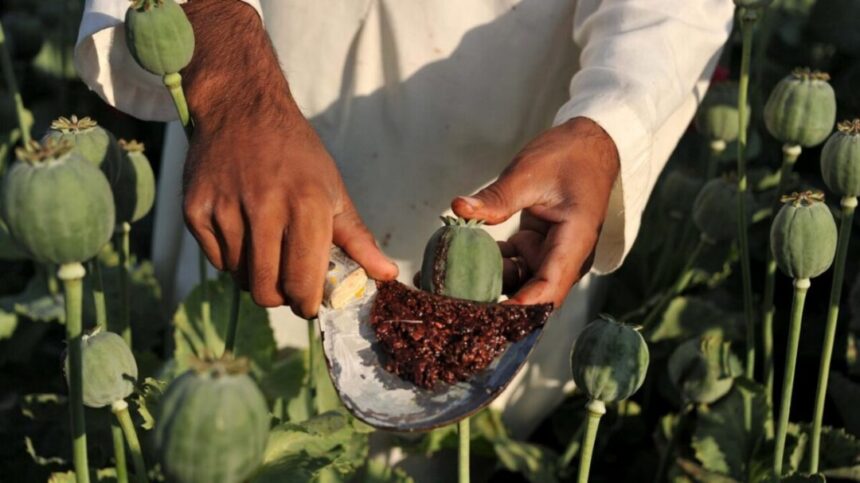RASC News Agency: The Special Inspector General for Afghanistan Reconstruction (SIGAR), in its 66th quarterly report to the U.S. Congress, has underscored that despite the Taliban’s official ban, Afghanistan’s opium trade remains entrenched and resilient. Citing David Mansfield, a leading expert on counternarcotics, SIGAR attributes this persistence to several critical factors, including severe economic distress, substantial opium reserves, ongoing trafficking networks, localized resistance to the ban, the Taliban’s failure to provide viable economic alternatives for poppy farmers, and widespread skepticism regarding the sustainability of the prohibition.
The report highlights that the recent decline in opium prices signals growing uncertainty in the narcotics market. Despite the Taliban’s proclaimed crackdown on drug cultivation and trade, methamphetamine production and distribution continue unabated across the country. Moreover, SIGAR asserts that the full scale of narcotics production in Afghanistan remains indeterminate, raising concerns over the Taliban’s ability to effectively enforce its policies. Citing analysis from the U.S.-based Sobeh Institute, the report suggests that the Taliban’s suppression of opium cultivation forcing farmers to switch to low-value crops such as wheat will likely exacerbate economic hardship and fuel rising discontent among Afghanistani farmers.
The report further warns that any loosening of restrictions could precipitate a swift resurgence in poppy cultivation, further eroding the Taliban’s already tenuous grip on power.






